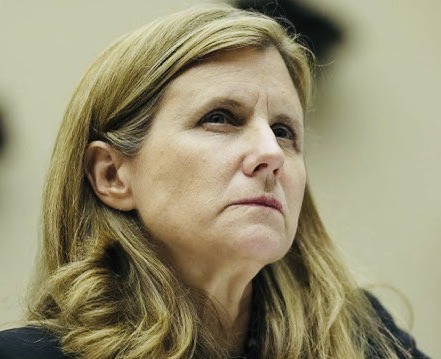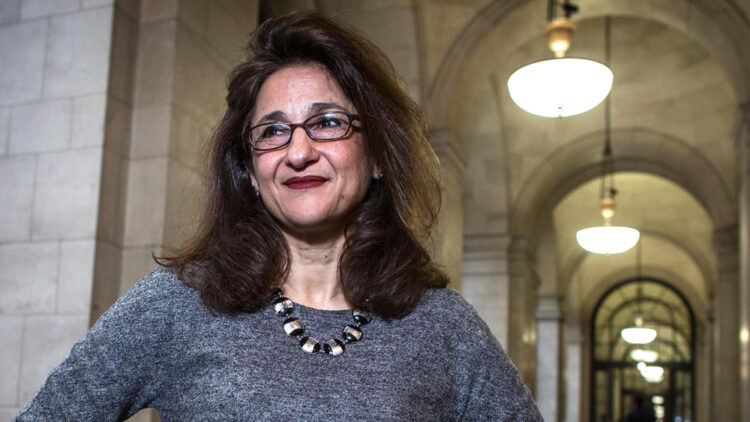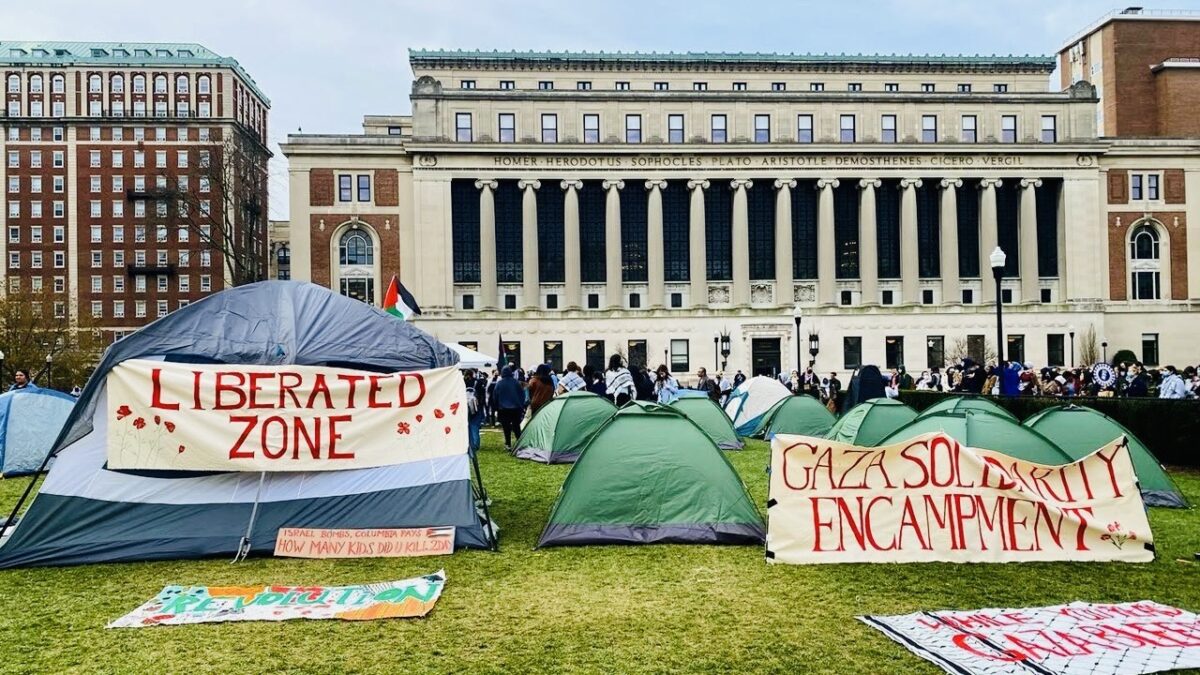With students scheduled to return to classes next month, universities in the United States have adopted stringent new rules to limit pro-Palestinian protests, which erupted on campuses following the outbreak of the Israel-Hamas war in the Gaza Strip last October.
Under the new regulations, encampments will be banned, protests will be allowed only in designated spaces, and signs and banners will not be permitted to be displayed spontaneously.
These measures were enacted after demonstrators interfered with learning, hampered normal school operations, and engaged in pro-Palestinian rhetoric that crossed a red line into antisemitic hatred as far as the majority of Jewish students were concerned.
The newly announced rules are not intended to curtail free speech or lawful assembly, essential components of university life, but to maintain calm and order on campus.
The American Association of University Professors, however, has condemned “overly restrictive policies” on the ground that they could have a chilling effect on free expression. “Our colleges and universities should encourage, not suppress, open and vigorous dialogue and debate even on the most deeply held beliefs.”
The association has rushed to judgment, failing to appreciate that universities have a duty and an obligation to preserve safety and order on campus, and that universities are simply updating existing rules designed to achieve these vital objectives.
Since a high proportion of its members tend to be critical of Israel or are unabashedly anti-Israel and are inclined to regard Hamas as a heroic “liberation” movement, the association is naturally sympathetic toward Palestinian students and their supporters, who were in the vanguard of the protests.
These activists have adopted a pro-Hamas narrative, which regards Israel as an illegitimate “settler state” and rejects a two-state solution. They have also presented highly political demands. They want American universities to sever academic and financial ties with Israeli universities and companies and the United States to cut off arms sales to Israel.
The protests they organized were not only disruptive. They rattled and intimidated Jewish students who support Israel and its just war in Gaza.
What is abundantly clear is that their encampments broke private property and trespass laws, and that their illegal occupation of university buildings forced administrators to call in the police.

The protests compelled several university presidents to resign after their appearance at congressional hearings, during which they evaded questions concerning antisemitism and genocide. The presidents who tendered their resignations during this period were Liz Magill of the University of Pennsylvania, Claudine Gay of Harvard and Martha Pollack of Cornell University.
Last week, Columbia University president Nemat Shafik stepped down in the face of criticism that she had mishandled the protests and had acted weakly in reacting to concerns about antisemitism. Prior to her resignation, Columbia began restricting access to its campus to curb “potential disruptions.”

The University of Pennsylvania, meanwhile, has announced guidelines that include bans on encampments and the use of speakers and bullhorns until after 5 p.m. on class days. In addition, banners and posters must be removed within two weeks of going up.
On August 20, the president of the University of California directed the system’s ten campuses to enforce a ban on encampments and the wearing of face masks by demonstrators.
This occurred after a federal judge ruled that the University of California, Los Angeles, cannot allow anti-Israel protestors to block Jewish students from accessing campus. The verdict, the first of its kind in the United States, came after three Jewish students, in a civil rights lawsuit, raised serious concerns regarding UCLA’s failure to protect Jewish students.
At the University of South Florida, tents, canopies, signs and banners cannot be erected without prior approval, and no “activity” is permitted after 5 p.m. on week days.
Indiana University now prohibits “camping,” protests after 11 p.m. and the display of signs without permission.
And at Harvard, the student newspaper reports, the administration is considering prohibitions on overnight camping, unapproved signs and chalk messages.
Harvard, though, recently released diplomas to 11 students who participated in anti-Israel demonstrations and reversed its decision to suspend five students who participated in the protests.
